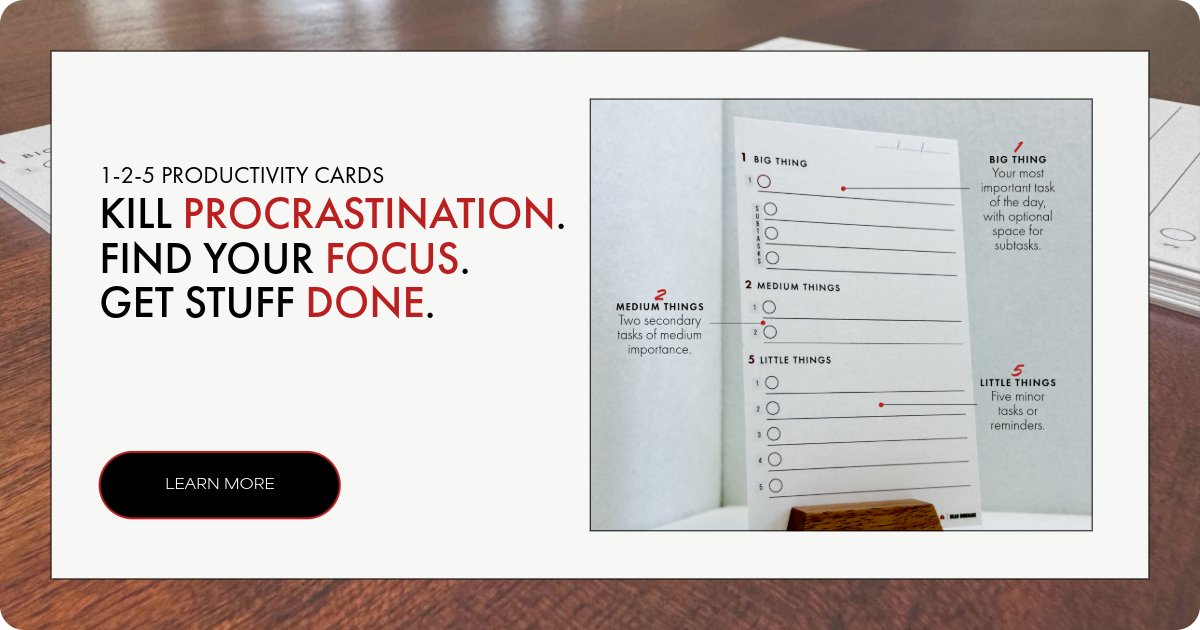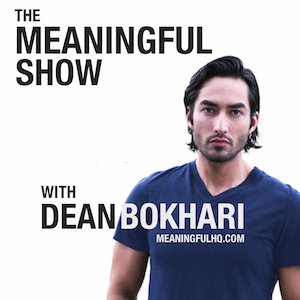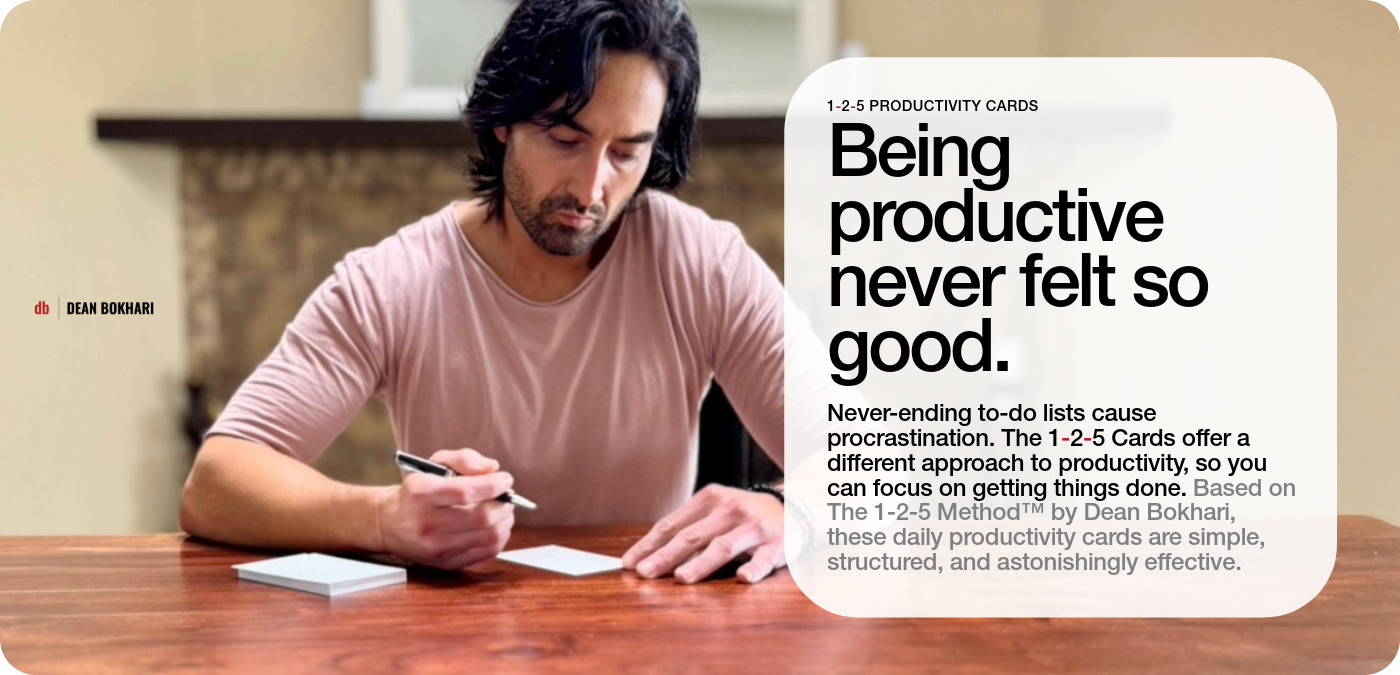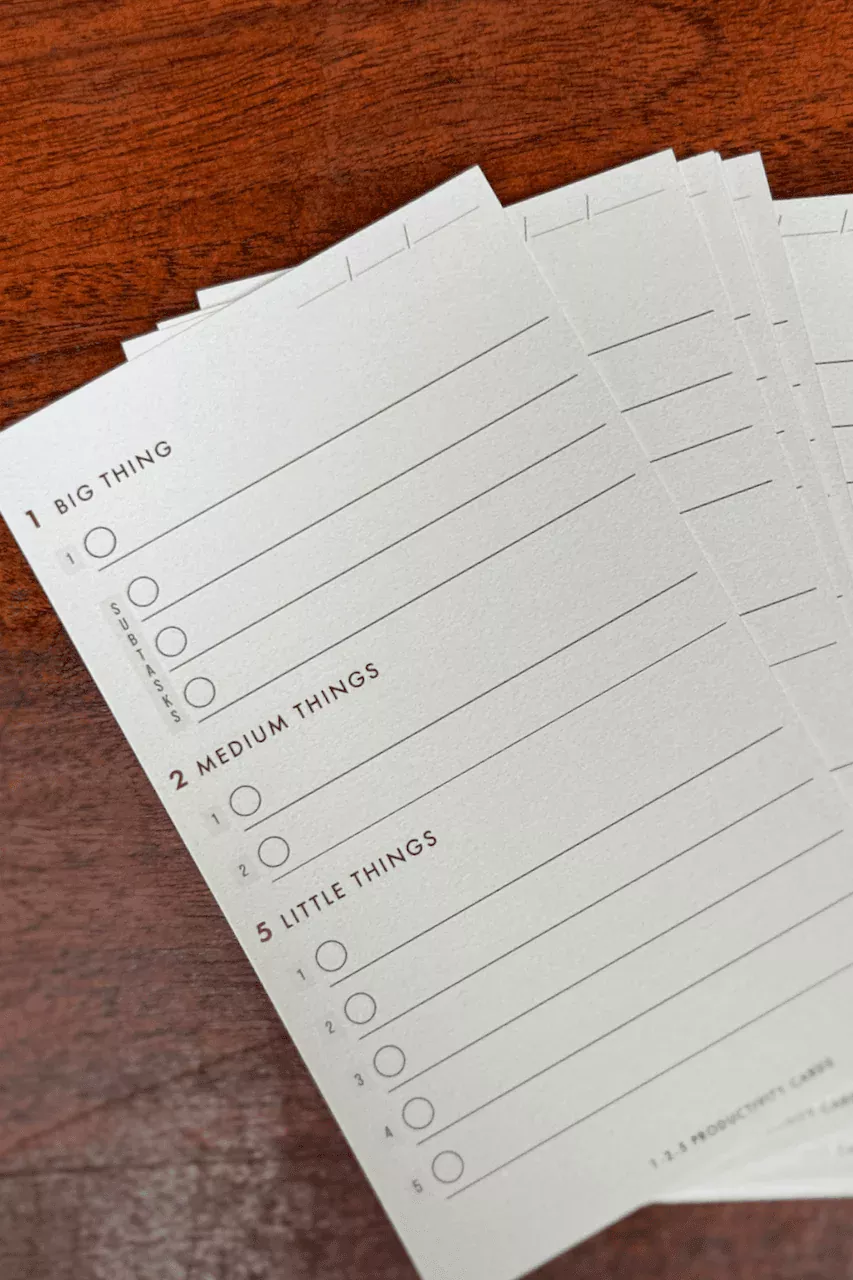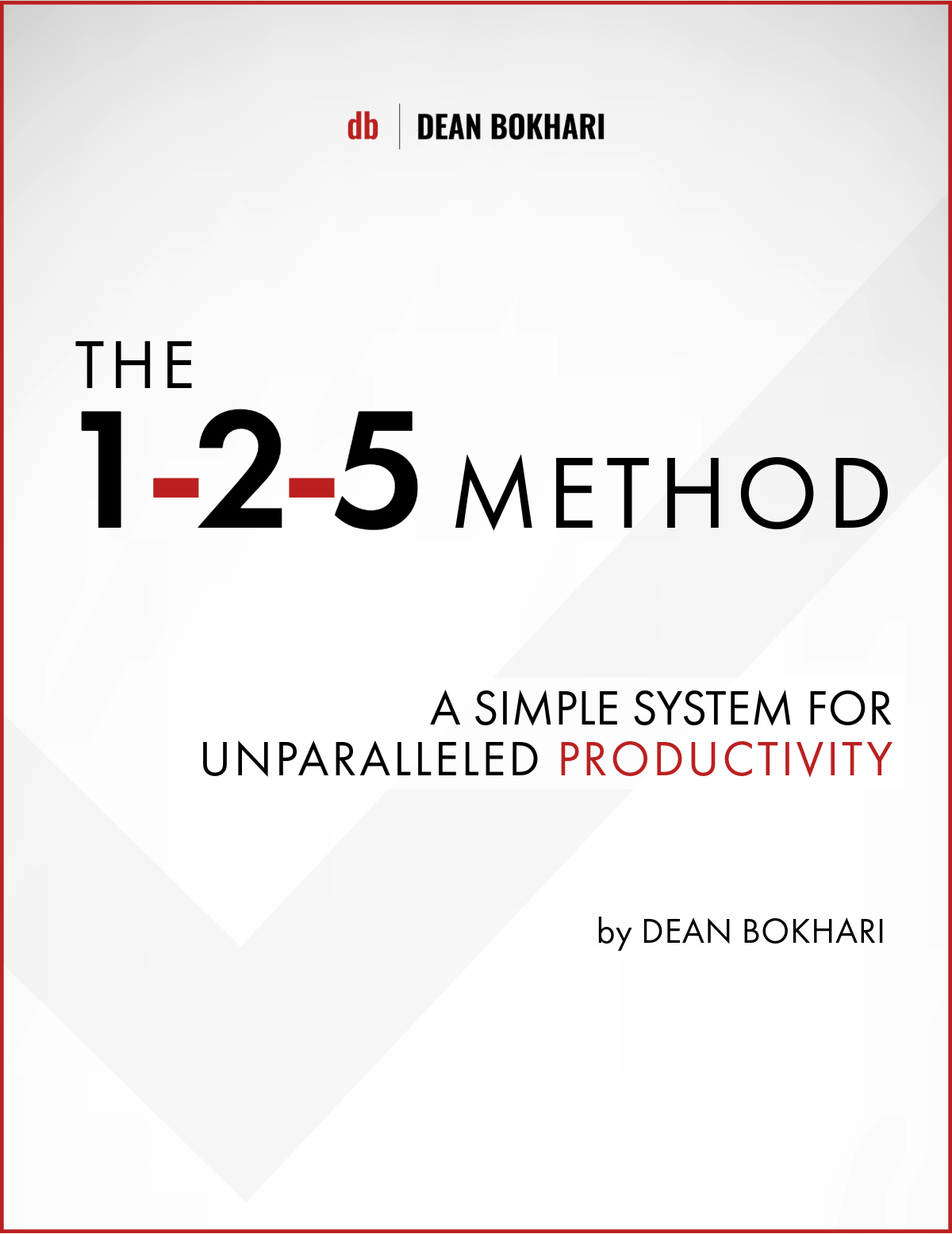30 Day Trials: The Secret to Starting Good Habits that Stick
30-day trials are one of the most game-changing personal development ideas I’ve ever incorporated into my life.
And in this episode of the podcast we're going to dive into all the ways in which you can use 30-day trials as a launching pad for creating good habits that stick.
Press play to start listening, or scroll down to read the article version...
EP173. 30-Day Trials: The Secret to Starting Good Habits That Stick
Aside from being a generally useful personal development tool, 30-day trials can be especially helpful if you’ve ever had issues adopting good habits — like working out every day, going vegan, or journaling. They’re also helpful for breaking bad habits — like your to addiction to social media, or smoking, or doing crack-cocaine while watching VR porn (hey, I don’t know what you’re into). For most people, making massive changes like the ones above can be so overwhelming that they never even get started in the first place. The reason why 30-day trials are effective is because they help us shift our perspective from: “OMG! I’m way too overwhelmed for this right now!” to: “Hey, it’s just 30 days right? I can try anything for a month.” Let’s talk about how we can shift your perspective to the latter…Why do a 30-day trial?
The main idea with 30-day trials is simple: pick a new habit you’d like to start, or a bad habit you’d like to break, and then just try it out for 30 days and see how it goes… It’s only 30 days. One month. No problem. You can do that, right? Most people can get themselves to do pretty much anything for 30 days because it’s a lot easier to convince our procrastination-prone, easy-to-overwhelm brains to stick with something new if we’ve broken it down into something we believe is achievable. What’s one of the best ways to make something achievable? Attach a 30-day trial to it. 30-day trials give you a foreseeable future; an endpoint in case you want to bail after your 30 days are up. They also allow you to observe your goals as an experiment, which means you’re less likely to feel like a failure if you decide not to remain a vegan (or whatever else) for the rest of your living days. What would you say is easier?- (A) trying to convince your brain to accept a goal like work out every day; or
- (B) convincing your brain to work out every day for one month.
Examples of 30-day trials.
- Wake up at X:00 AM every day. This was my first 30-day trial ever. Almost ten years ago, I decided to start waking up at 5:00am every day. I haven’t looked back since.
- Pescatarian. Seafood only. No meat. I experimented with this back in January, 2013. I felt great after my 30-day trial going pescatarian. And it really got me thinking about minimizing my meat intake, especially red meats like lamb and beef. My primary reason for not keeping it up were my concerns with the high mercury content of seafood.
- Gluten-free diet. No wheat, barley, or rye. Doing this 30-day trial actually resulted in me adopting a 90% gluten-free diet indefinitely. It was a total game-changer for me.
- Vegetarian. In early 2014, I tried going vegetarian for 30-days. This was my first foray into the meat-free world. From what I can remember, it went well. But not well enough for me to keep it up. I believe this is because I didn’t educate myself enough about optimizing my diet for this way of life.
- Vegan. Similar to vegetarian, but more restrictive—no eggs or dairy. A few months after my 30-day trial with vegetarianism, I read a phenomenal book called The China Study by T. Colin Campbell. This book was a paradigm shifter for me in a lot of ways. My biggest lesson here was this: I didn’t need to be stuffing my face with 150 grams of protein per day to “build and maintain muscle”. In fact, I learned I could cut that portion into a quarter and still maintain my lean muscle mass. And the less of it that comes from meat, the better. These claims, by the way, are based on science—not some supplement company selling cheap cheddar cheese as protein powder. Alas, all of this information still wasn’t enough to get me to end my romance with meat. So I went back to becoming a carnivore shortly after my 30-day vegan trial.
- Plant-based diet. (My current 30-day trial, as of January 5, 2017) This one’s even more restrictive than going vegan, but essentially the same thing. The only difference is that, on a plant-based diet, the majority of your food intake should come from foods derived from plants. Going plant-based makes you vegan by default. Another difference: it’s easy to get fat and unhealthy when you go vegan (lots of sugar and carbs will get you there); but it’s hard to be fat (or unhealthy) if you’re properly following a plant-based diet.
- No TV for a month. This one was so beneficial, it resulted in me quitting TV for one full year.
- Meditate every day. A couple years ago, I started a 30-day meditation trial. 15 minutes a day. I ended up sticking with this one over the long-term.
- Tell your spouse/partner what you’re grateful for every day. Gratitude plays a major role in developing a loving, lasting relationship. Last year, the wife and I decided to try telling one another at least one thing we were grateful for about each other, every night before bed. After the 30-day trial, we decided to maintain it for life. We even gave it a name: we call them “gratitude goodnights.”
- Compliment someone new every day.
- Read for 15–60 minutes a day.
- Go out for a walk every day.
- Write every day.
- Journal every day.
- Workout every day.
- No Facebook for one month.
- Stop cursing for 30 days.[1]
- Stop your negative procrastination habits.[2]
- Meet someone new every day for 30 days.[3]
- Make 30 new sales calls every day.
- No phone for one month.
- No internet for one month.
- Combine the previous two ideas to go off the grid completely for one full month. (No phone + no internet.)
- No complaints for a month.
- No goals for one month. Systems only.
- Stop drinking alcohol for a month.
- Log everything you do for 30 days.
Turning good trials into good habits.
If you decide to embark on a 30-day trial of your own, and enjoy having done so, it’s likely you’ll want to turn that bad boy into a life-long habit. Habits make things easy because we execute them automatically and without much willpower (like going to the gym at the same time every day). But habits are hard to start because they require willpower until they’ve been fully installed. For some folks, a 30-day trial can be enough time to build a behavior into a regular habit. But for most people, it can take a little longer to turn that 30-trial into a long-term habit. How long, exactly? The number varies from person to person, but according to research, it takes most people about 66 days to develop a discipline into a habit[4]. This number might vary for you depending on your situation, but remember that it’s not something that you can do overnight. But it is possible. And if you can get yourself to do something for 30 days, you’re already almost half way towards transforming that trial it into a habit that sticks with you for the rest of your life. Which brings us to one of the biggest benefits of starting a 30-day trial: they serve as what I like to call habit ramps… In the same way that you cautiously merge onto a major highway from an exit ramp, 30-day trials can help you merge onto major, life-transforming habits. Habits, after all, are the invisible architecture of our lives. And since we have the power to choose which habits we want to install—and which ones we don’t—we are, in essence, the architects of our lives… which is a beautiful privilege we should all be taking advantage of. Don’t you think? ###- This one’s self-explanatory. And you get to choose what’s considered cursing and what isn’t. I’ve been known to drop the occasional F-bomb to emphasize a point or two, so needless to say, I don’t think I’ll be trying this one out anytime soon. ↩
- Instead of procrastinating on your projects and tasks, promise yourself to “just do it” for 30 days. Since procrastination is fostered by habit, and habits are hard to build, a 30-day trial could be exactly what you need to kick the habit of procrastinating once and for all. ↩
- This doesn’t require you to ruin your precious routines — just introduce yourself to new people while you’re doing whatever you usually do. If you’re at the grocery store, get to know the clerk. When you go to the gym, introduce yourself to the people that workout at the same time of the day you do. Simply making an effort to put names to the familiar faces you see on a daily basis can dramatically transform your life. Additionally, you can also check out places like meetup.com to connect with folks who share common interests. ↩
- Lally, P., van Jaarsveld, C. H. M., Potts, H. W. W. and Wardle, J. (2010), How are habits formed: Modelling habit formation in the real world. Eur. J. Soc. Psychol., 40: 998–1009. doi:10.1002/ejsp.674 ↩
Dean Bokhari's Meaningful show is supported by...
- Audible Audiobooks | Thousands of titles to choose from + listen to on any device. Get your free audiobook here.
- FlashBooks Book Summaries | Top Self-Help + Business Book summaries you can read (or listen to!) in about 20 minutes per book. The best part? The book summaries are designed specifically for busy peeps on the go (like you, maybe?) Start your risk-free, 7-day trial here.
Subscribe to Dean Bokhari's Meaningful Show.
Available on major podcast platforms everywhere.
Subscribe to podcast for free on:
iTunes | Stitcher | Spotify | Overcast | Google Podcasts
LIVE LIKE YOU GIVE A DAMN,
Dean Bokhari
- If you find the podcast helpful, please rate + review it on Apple Podcasts »
- Got a Self-Improvement question you'd like me to cover? Submit it here »
"Dean Bokhari's Meaningful Show is the Self-Improvement Podcast I've been
waiting for. It's actionable, inspiring, and BS-Free." —Brett Silo
✨ New Series: How to Become an Early Riser
- Discover key methods to make early rising a habit
- How to wake up early + energized every morning
- Morning routines for health + success
Free self-development courses
👇
Tap on any of the courses below to start learning how to:
- boost your productivity (with GTD),
- get focused (with Deep Work),
- or learn the art of influencing others (with the How to Win Friends & Influence People course.)
All for free.
👇
Free life guides
👇
Best-selling Self-development courses by Dean Bokhari
Kill procrastination.
|
Get stuff done.
|
Get motivated.
|
Connect with anyone.
|
freshly pressed:
Top Audiobooks narrated by Dean Bokhari on audible | |
Book summaries
- The Power of Habit by Charles Duhigg
- 12 Rules for Life by Jordan B. Peterson
- Presence by Amy Cuddy
- Leaders Eat Last by Simon Sinek
- The ONE Thing by Gary Keller, Jay Pasan
- Deep Work by Cal Newport
